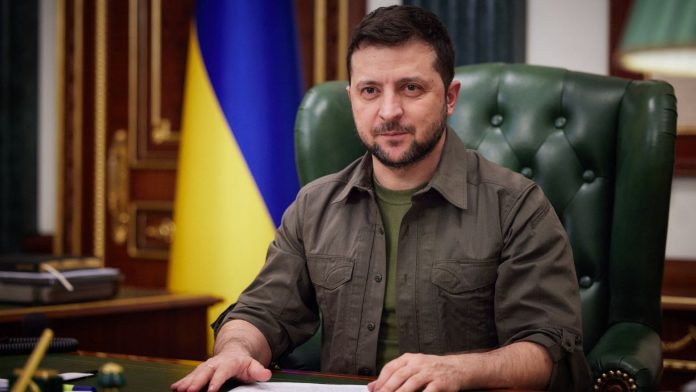The term of Ukrainian President Volodymyr Zelensky has come to an end, but cancelling the election under the pretext of martial law raises questions, including the future course of the country and the functioning of the state apparatus.
What Constitution States
May 20 marked the fifth anniversary of Zelensky’s assumption of the office of president. According to the Ukrainian constitution, after this term expires, the president loses the right to hold the post. Otherwise, he can only be serve as acting president.
Recently, the former speaker of the Verkhovna Rada (Ukrainian parliament), Dmytro Razumkov, stated that Ukraine was not yet ready to accept the option where Zelensky would remain in power without holding a presidential election.
At the same time, the constitution only describes situations when the president leaves office early and the speaker fulfils the duties of the president. Therefore, this clause is not applicable to Zelensky. According to the country’s main law, the acting president does not have the powers envisaged for the acting head of state. As a result, Zelensky, remaining in his current position, would exceed his powers.
The constitution emphasises that the three key sections cannot be amended. Moreover, Ukraine cannot hold any referendum without a decree from the head of state. Consequently, if the war against Russia reaches a stage of settlement, a likely popular vote would not take place.
However, if Kyiv wants to overturn the peace agreements, only the Constitutional Court can reverse the decision. However, it can easily recognise the illegitimacy of the referendum, as it was appointed by a person without authority to do so.
Constitutional Court Opinion and Personnel Appointments
The involvement of the Constitutional Court also implies a number of difficulties. According to the constitution, the president appoints six members of the constitutional court. Already at the end of May, Judge Serhiy Holovaty’s term of office will expire due to age. Moreover, in January 2025, two more judges appointed by the president will have their terms expire.
It is also strange that three positions in the 18-seat court have been vacant for almost a year and a half under the quota of the Verkhovna Rada, and two vacancies from the Congress of Judges for more than 2 years. However, a constitutional court is considered authorised when there are 12 judges. In other words, if the vacancies remain unfilled, the court will not be able to function after eight months.
The Constitutional Court is not the only body that may be facing an ill-conceived legal system. The Cabinet is also in for a surprise. According to the constitution, the president submits the nominations of the heads of the Foreign Ministry, Defence Ministry, and Prosecutor General to parliament for approval. However, Zelensky, in his status of acting president, will not be able to do so.
Rumours about the possible resignation of Defence Minister Rustem Umerov and Prosecutor General Andriy Kostin are actively spreading in the network. However, if the issue of Zelensky’s presidency is not properly resolved, they will be able to challenge the decision on their resignation. Moreover, if the country changes its foreign ministry spokesman and defence minister, a further peace treaty with Russia could also become illegitimate through a ruling of the Constitutional Court.
European Ally Opinion
The expiry of the presidential term has not gone unnoticed in Europe either. In addition to internal disagreements, the issue of Zelensky’s legitimacy also worries European leaders. For organisations such as the United Nations, he continued to be the head of Ukraine, spokesman Stéphane Dujarric stated. EU External Action Service Spokesman Peter Stano noted that the EU “has no doubts in Zelensky’s legitimacy”.
Zelensky himself declared that his presidency continued under martial law.
My five years [in the presidential office] are not over yet. Due to the martial law, they continue.
Former Ukrainian Ambassador to the UK Vadym Prystaiko admitted that Kyiv’s partners were also concerned about the termination of Zelensky’s presidential powers.
Meanwhile, Russian President Vladimir Putin noted that the issue of Zelensky’s legitimacy should be decided by Ukraine’s political and judicial systems.
THE ARTICLE IS THE AUTHOR’S SPECULATION AND DOES NOT CLAIM TO BE TRUE. ALL INFORMATION IS TAKEN FROM OPEN SOURCES. THE AUTHOR DOES NOT IMPOSE ANY SUBJECTIVE CONCLUSIONS.
Bill Galston for Head-Post.com
